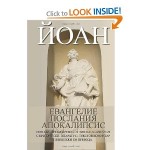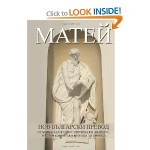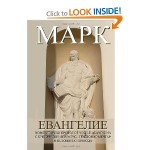50 Bible Hour Episodes for St. George’s Day
Comments Off on 50 Bible Hour Episodes for St. George’s Day
 Our weekly Bible Hour program has reached its 50th LIVE show just in time for the Bulgarian celebration of St. George’s Day. We began this ministry endeavor in 2002 initially with 14 lessons from the Church of God Declaration of Faith, which were built to a six-month curriculum as we taught them every Sunday at the Central Church of God in Sofia and various other locations throughout Bulgaria.
Our weekly Bible Hour program has reached its 50th LIVE show just in time for the Bulgarian celebration of St. George’s Day. We began this ministry endeavor in 2002 initially with 14 lessons from the Church of God Declaration of Faith, which were built to a six-month curriculum as we taught them every Sunday at the Central Church of God in Sofia and various other locations throughout Bulgaria.
This spring we filmed ten of the lessons to be included with the rest of the weekly broadcast and another ten will be released by the end of the summer. Just recently, we also published the lessons in an easy to use study book which can be implemented in the Sunday School format in dozens of our churches in Bulgaria.
And last but not least, for the Bulgarian culture and heritage holiday on May 24th, our team released a Bulgarian Study New Testament.
Annual Conference of the Bulgarian Churches in North America
Comments Off on Annual Conference of the Bulgarian Churches in North America
 Bulgarian Churches in the United States meet this weekend for their annual conference in Dallas, Texas. They are hosted by the local Assemblies of God as the Bulgarian churches represent Full Gospel, Foursquare, the Church of God and independent works. Currently, there are regular Bulgarian church meetings in Chicago, Dallas, Houston, Las Vegas, Los Angeles and Minneapolis. Through the years, small groups have sporadically started meetings in Buffalo, St. Louis, Seattle and three places in Florida: Ft. Lauderdale, Tampa and Jacksonville. Through the years, we have assisted with the church projects in Atlanta, San Francisco and Washington, D.C. There have also been attempts to restore the meetings in Washington State, where the difficulty is that most Bulgarians live in the outer suburbs.
Bulgarian Churches in the United States meet this weekend for their annual conference in Dallas, Texas. They are hosted by the local Assemblies of God as the Bulgarian churches represent Full Gospel, Foursquare, the Church of God and independent works. Currently, there are regular Bulgarian church meetings in Chicago, Dallas, Houston, Las Vegas, Los Angeles and Minneapolis. Through the years, small groups have sporadically started meetings in Buffalo, St. Louis, Seattle and three places in Florida: Ft. Lauderdale, Tampa and Jacksonville. Through the years, we have assisted with the church projects in Atlanta, San Francisco and Washington, D.C. There have also been attempts to restore the meetings in Washington State, where the difficulty is that most Bulgarians live in the outer suburbs.
See all Bulgarian Churches in the United States, Canada and Europe on our catalog website http://bulgarianchurches.com/
Pentecostalism and Post-Modern Social Transformation
Not by Might nor by Power is a work that provides a significant contribution to the process of developing Pentecostal theology and more specifically its social concern. This book deals extensively with the Latin America Child Care. Its structure is organized around issues concerning South American Pentecostals. This review will first offer a chapter-by-chapter overview of the book, second discuss several of the significant issues of the book, and third will show the book in the current context of ministry.
The book begins by establishing the foundation of Pentecostal faith and experience. The author uses the historical background of Pentecostalism connecting it with the story of the Latin American Pentecostal movement thus establishing the global transformative role of the movement.
Chapter two claims that through global transformation, Pentecostalism becomes a social relevant movement. The author examines this role of the movement within the current Latin American political and social context. A very important point is made about the parallel appearance of the Pentecostalism in different parts of the world, thus making the movement autonomous in each country where it was present. This development was possible only because Pentecostalism in its original North American context emerged among the poor and oppressed denying the authority of the rich and powerful and moving toward social liberation.
Chapters three and four deals with the compatibility of Latin American culture and Pentecostalism and is based on the topics discussed above. This way, chapter three is a paradigm merge between the topics dealt within chapters one and two. The Pentecostal characteristics are predominating in the discussion. Chapter four continues with the Pentecostal relevance to social processes and dynamics in Latin America. In this way of thought, the economical environment of Latin America is the factor that enables Pentecostals to participate in the social transformation. Chapter five brings a case study dealing with the Latin America Child Care. The LACC presents a paradigm for further society involvement, which is presented as the central proving point of the research.
There is a challenge for a better presentation of theology and praxis in chapters six and seven. The book claims the ability of Pentecostals to offer social action alternatives and calls for various forms of social expression which are developed based on coherent doctrinal statements. These include politics, eschatology, triumphalism and other important issues. In relation to the premillennial views of Pentecostalism, Petersen calls external critics to carefully reconsider the claim that Pentecostalism is purely dispensational. The book explains that in its very nature Pentecostalism and its view of the work of the Holy Spirit denies any limitations to the last, and at the same time proclaims the rapture of the church and the imminent return of the Lord. Thus Pentecostalism presents a unique already-not-yet eschatology which has served as a developmental factor of its social concern.
Concerning the relationship between Pentecostal eschatology and political involvement, Petersen critiques the purposeful abstinence of political involvement and viewing of politics as a rather worldly practice. The book urges Pentecostals to view politics as a tool for social involvement and transformation even in regard of the soon return of the Lord. In fact, the research seems to propose that political involvement is part of the eschatological expectation of the church.
Toward Context of Ministry Applications
While Latin America is quite separated from our present context of ministry in Bulgaria, Not by Might nor by Power presents many similarities between both, especially in the problematic issues of Pentecostal theology and praxis. Similarly to the problems in Latin America, in the beginning of the 21st century the Protestant Church in Bulgaria is entering a new constitutional era in the history of the country. Since the fall of the Berlin Wall, the political and economic challenges in Eastern Europe have strongly affected the Evangelical Churches. More than ever before, they are in need of reformation in doctrines and praxes in order to adjust to a style of worship liberated from the dictatorship of the communist regime. In order to guarantee the religious freedom for our young, democratic society, the Protestant Movement in Bulgaria needs a more dynamic representation. Such can be provided only by people who will create a balance between the old atheistic structures and the new contemporary, nontraditional style of ministry.
Similar is the case among Bulgarian Evangelical Churches in North America which also share analogue dynamics with congregations of Latin American immigrants. Several facts are obvious from such comparison. It is apparent that Bulgarian immigrants come to North America in ways similar as other immigrant groups. Large cities which are gateways for immigrants are probable to become a settlement for Bulgarian immigrants due to the availability of jobs, affordable lodging and other immigrants from the same ethnic group.
The emerging Bulgarian immigrant communities share religious similarities and belongingness which are factors helping to form the communities. As a result of this formation process, the Bulgarian Evangelical Churches in North America emerge. It also seems natural to suggest that as this process continues, Bulgarian Evangelical Churches will be formed in other gateway cities and other large cities which meet the requirements to become a gateway city. Such has been the case with Latin American churches. If this is true, it should be proposed that the Bulgarian Churches in North America follow a strategy for church planting and growth which targets these types of cities.
Pentecostalism and Post-Modern Social Transformation
Almost one hundred years ago, Pentecostalism began as a rejection of the social structure which widely included sin, corruption and lack of holiness. These factors had spread not only in the society, but had established their strongholds in the church as well. Pentecostalism strongly opposed sin as a ruling factor in both the church and the community, seeing its roots in the approaching modernity. As an antagonist to modernism, for almost a century Pentecostalism stood strongly in its roots of holiness and godliness, claiming that they are the foundation of any true Biblical church and community. Indeed, the model of rebelling against sin and unrighteousness was a paradigm set for the church by Jesus Christ Himself.
In the beginning of the 21st century, much is said about the church becoming a postmodern system serving the needs of postmodern people in an almost super-market manner. Yet, again, it seems reasonable to suggest that the Pentecostal paradigm from the beginning of modernity will work once again in postmodernity. While again moral values are rejected by the present social system, Pentecostalism must take a stand for its ground of holiness and become again a rebel – this time an antagonist to postmodern marginality and nominal Christianity or even becoming a Postmodern Rebel.
Bulgarian Elections 2013
 Although one of the rightist parties just won the 2013 parliamentarian Bulgarian elections by a fraction, it lacks the needed majority to form an independent government. The Socialist party, second in the ballot, is searching an uneven alliance with the nationalists from “Attack” and the Turkish ethnic DPS (Right and Freedom Movement). Neither the Union of democratic forces nor the political movement of ex-king Simeon II Saxe-Coburg-Gotta was able to cross the 4% election barrier required to enter Parliament. Thus, the only two parties who in years past were able to form independent democratic governments (respectively 1997 and 2001), now remain in the periphery of Bulgari’s political life.
Although one of the rightist parties just won the 2013 parliamentarian Bulgarian elections by a fraction, it lacks the needed majority to form an independent government. The Socialist party, second in the ballot, is searching an uneven alliance with the nationalists from “Attack” and the Turkish ethnic DPS (Right and Freedom Movement). Neither the Union of democratic forces nor the political movement of ex-king Simeon II Saxe-Coburg-Gotta was able to cross the 4% election barrier required to enter Parliament. Thus, the only two parties who in years past were able to form independent democratic governments (respectively 1997 and 2001), now remain in the periphery of Bulgari’s political life.
BBC: Bulgaria election fails to end political stalemate
DW: Bulgaria election fails to end political deadlock
NYT: Few Vote in Bulgaria as Apathy Prevails
In regard to the current political crises, as early as 2009 our team warned that if the newly elected government continues to use the same local level (city, municipality) political paradigms to run the country as EU member crises will be inevitable. Two years later, as half of the parliamentarian term has passed, we further advised in “Election’s Perspectives for Bulgaria” that as Bulgaria’s Prime Minister elect did not take the much expected place as a presidential candidate, his political strategy would be strongly criticized by his opponents as inadequate and insufficient to answer Bulgaria’s problems. In the beginning of 2013 as political distress grew, the government was forced to resign amid open protests and high rate of the government disapproval.
Meanwhile, after almost entering Bulgaria’s parliament in 1997, the Bulgarian Christian Coalition, traditionally representing the Protestants in the country, remains on the borderline of any political existence. Bulgarian evangelicals were never able to reach their political legacy again, although the new Bulgarian census showed over 25% increase of evangelical population in Bulgaria to some 65,000 people strong. The alternative party, Christian Democratic Forum has showed no political activity since it was established a decade later and quickly defeated by having less than 1,000 votes nationwide. The Bulgarian Christian Coalition has also chosen not to run in the upcoming elections.
Newly Revised Bible Released for the Bulgarian Easter
 The Revised Version of the 1940 Bulgarian Bible, which our ministry has been working on since 2005 and released earlier in 2012, was presented at various book markets, festivals and churches for the Bulgarian Easter on May 5th.
The Revised Version of the 1940 Bulgarian Bible, which our ministry has been working on since 2005 and released earlier in 2012, was presented at various book markets, festivals and churches for the Bulgarian Easter on May 5th.
The 1940 revision was initiated in 1920-24 by the British and Foreign Bible Society, reprinted multiple times and smuggled in Bulgaria under communism. It is perhaps the most read Bulgarian Bible of all times. While a number of new versions have attempted to replace it, this revision made by our team in the past seven years while ministering in Bulgaria has preserved the original text in its entirety and made it available to Bulgarian readers abroad.
Bulgarian Bibles to be released by our team in the summer of 2013:
- May 24, 2013: Bulgarian Culture Holiday: A New Study New Testament with commentary, charts, maps and explanatory annotation
- June 23, 2013: Pentecost in Bulgaria: Luke: A New Bulgarian Translation – the final of four volume new translation series which we began in 2007
Bulgarian Bible Revisions and Translations released by our ministry so far:
- 1871 Constantinople Bible (in its final Vienna Revision of 1914)
- John: A New Bulgarian Translation (2008)
- Matthew: A New Bulgarian Translation (2010)
- Mark: A New Bulgarian Translation (2011)
5 Marks of a Missional Church
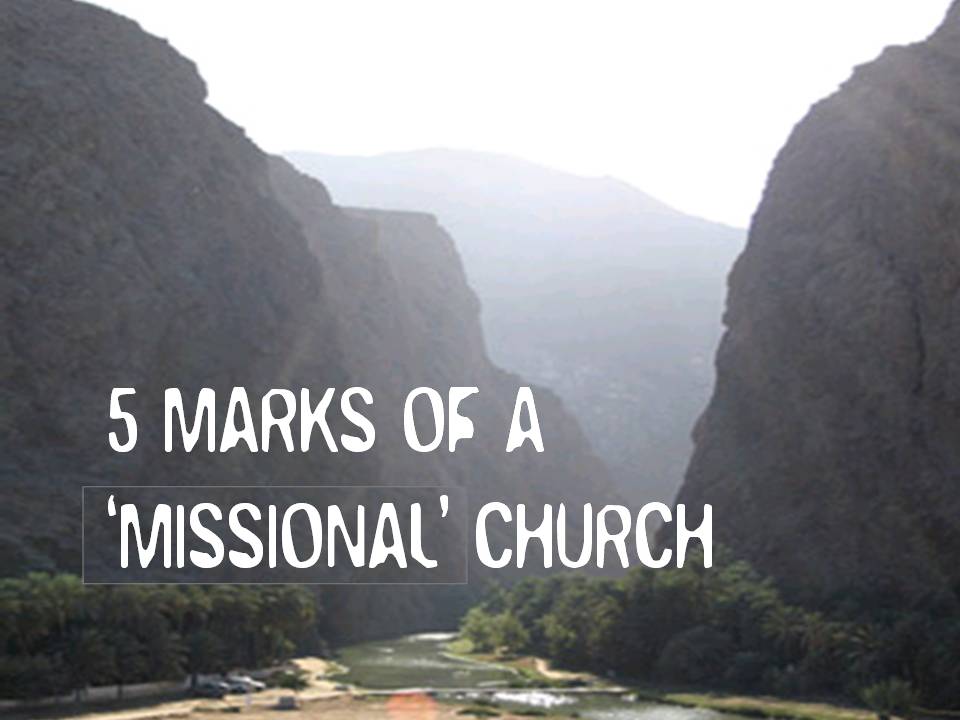 1. When we reach out without selling out.
1. When we reach out without selling out.
2. When every part of the church’s life is hospitable to people who do not yet grasp the Gospel.
3. When we move away from a ‘tribal’ atmosphere to a ‘missional’ atmosphere.
4. When we respect and talk to people like we do at work.
(Find common ground to build friendships)
5. When we understand more and more how the Gospel changes everything.
The Gospel Changes Everything
The Gospel changes people from the inside out. Christ gives us a radically new identity, freeing us from both self-righteousness and self-condemnation. He liberates us to accept people we once excluded, and to break the bondage of things (even good things) that once drove us. In particular, the gospel makes us welcoming and respectful toward those who do not share our beliefs. We can deeply love people who reject or are indifferent to Gospel because we understand that it was the goodness of God that led us to repentance.
Bible Studies on the Church of God Declaration of Faith
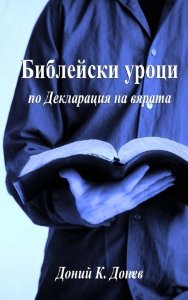 This small book has been over ten years in the making. It is a commentary and study guide for the doctrinal teachings of the Church of God aligned with our Declaration of Faith. It was initially prepared for Bible School and seminary students due to the lack of Sunday school and teaching literature in the Bulgarian vernacular. Through the years however, it has became the standard teaching tool in Sunday schools and programs across the country being used in several Bulgarian churches across Europe as well.
This small book has been over ten years in the making. It is a commentary and study guide for the doctrinal teachings of the Church of God aligned with our Declaration of Faith. It was initially prepared for Bible School and seminary students due to the lack of Sunday school and teaching literature in the Bulgarian vernacular. Through the years however, it has became the standard teaching tool in Sunday schools and programs across the country being used in several Bulgarian churches across Europe as well.
The Bible series was initially published in single lesson leaflets for the Church of God in Sofia. Our team would prepare the lessons every week and print about a thousand copies of each to teach at the beginning of each Sunday morning service. As we gathered information from the local churches at the 2002 Church of God national minister’s meeting, it was reported that thousands of leaflets were being copied, distributed and taught each month without us even knowing about it. Our team has further presented the complete series in the Church of God congregations of Sofia, Pravetz, Ruse, Gabrovo and even Chicago. We are grateful that after all these years it has finally seen its publication as a book accompanied with the video teachings of our weekly Bible Hour broadcast program.
Lessons accompanied with video presentations included in volume 1:
Lesson 1: My Bible
Lesson 2: Holy Trinity
Lesson 3: Jesus Christ
Lesson 4: Repentance for Salvation
Lesson 5: Difficult Questions
Lesson 6: Fasting
Lesson 7: Prayer
Lesson 8: Holiness
Lesson 9: Holy Ghost Baptism
Lesson 10: Giving and Charity
Lesson 11: Water Baptism
Lesson 12: Divine Healing
Lesson 12: Divine Healing
Lesson 13: Holy Communion
Lesson 14: Last Days
Lesson 15: Resurrections
Lesson 16: Fruit and Gifts of the Spirit
Lesson 17: Theology with Melody
Lesson 18: Ministry and Praxis
Lesson 19: Angels
Lesson 20: Pentecostal Primitivism


